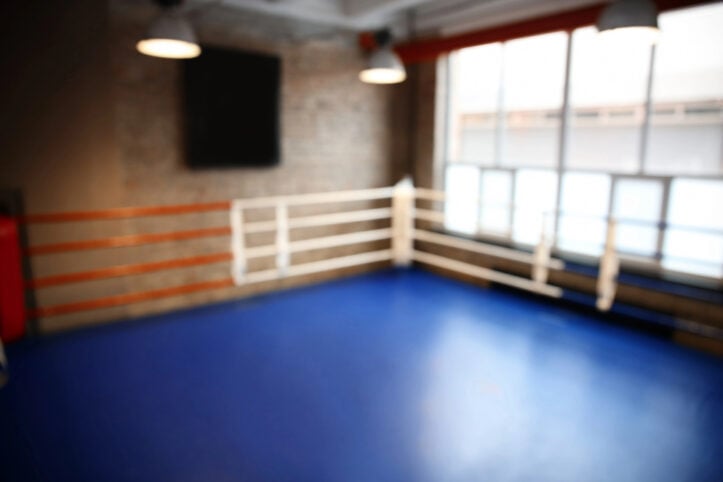Adhering to persuasive dealing- Fairfax criminal lawyer recounts
Adhering to persuasive dealing- Fairfax criminal lawyer recounts

Adhering to persuasive dealing is an important part of achieving a strong negotiated result for the defendant
Adhering to persuasive dealing is a bedrock of good negotiating for the defense. As a Fairfax criminal lawyer, I experienced that truism once again when recently ending an impasse in negotiating a DUI case involving a prosecution under Virginia Code § 18.2-266, where the prosecutor ultimately no longer demanded active jail time for a guilty plea where my client’s registered blood alcohol concentration (BAC) reading was 0.20, which risked a mandatory five days in jail, and more severely restricted driving than if the adjudicated BAC had been below 0.15. How did I accomplish this? Read on.
Some prosecutors and prosecutor’s offices are very reluctant to offer a no-active jail plea for a high BAC DWI case
In my home county of Fairfax, circumstances can be found where DWI cases with as high as a 0.20 BAC (and sometimes higher than that, in my experience) where the case can still negotiate for no active jail time, at least where the defendant has engaged in substantial self improvement steps and where the prosecutor knows they have bets to hedge if the case proceeds to trial. Some Virginia commonwealth’s attorney’s offices will be particularly reluctant to negotiate for no active jail time at all with such a high BAC. When I was in such a jurisdiction recently with a 0.20 BAC result for my client’s Virginia DUI case, none of my client’s substantial self improvement documents nor my talking about how active jail time could be a hurdle for my client’s job security got the prosecutor to budge off his offer of five non-mandatory days in jail (which would have translated into two nights in jail, when halving this non-mandatory minimum misdemeanor jail time, rounding up the resulting 2.5 days in jail to three days, and subtracting a day for the day of arrest). What did register with the prosecutor was the strength of my defense for the twenty-minute rule, which I address below, which I continued adhering to in our discussions.
Adhering to the twenty-minute rule breaks my sentencing impasse in this Virginia DWI case
With this Virginia DUI defense and my adhering to negotiations, I also pointed out to the prosecutor that the breath technician had failed to sign the attestation clause of the BAC certificate of analysis rather than simply block lettering his name (a situation I frequently find). The prosecutor asserted that such an issue was only relevant when the breath technician does not testify, but I differ, because the Fitzgerald v. Commonowealth of Virginia Court of Appeals case enables the prosecution to shortcut some procedural steps (for instance proving certification of the Intox EC/IR II breath testing machine within six months of testing) and I argue that the absence of a signature (versus block lettering, and sometimes the technician does not sign the certificate of analysis at all) deprives the prosecution of Fitzgerald benefits. Instead of saying the foreoging, I simply told the prosecutor that we both know what we will argue to the judge, and that the judge will decide the issue. I also pointed out that the breath technician that morning of trial told me of not recalling whether he had my client open his mouth at least twenty minutes before blowing into the breathalyzer machine, to check for foreign substances, as required by page 22 of the Virginia Department of Forensic Science’s breath test operator’s manual. He told me he engages his body worn video cameral (body cam) when in the breath testing room, but in this instance it seems that a technical issue amounted to the absence of such body cam footage in the Intox EC/IR II room. Thankfully, this absence of proof led to breaking our negotiating impasse (although the prosecutor made sure to say he was not conceding this 20 minute rule issue), and we obtained a no active jail plea together with fifty hours of voluntary community service (which I had prospoed earlier) and otherwise the standard first-offiense DWI plea conditions for this jurisdiction.
Virginia criminal defense battle is not about pitting the criminal lawyer against the prosecutor, but instead is an opportunity to harmonize a disharmonious situation and to solve a puzzle or series of puzzles
Had I let my ego get to me and stopped adhering to negotiations, I could have let myself get irritated at seeming intransigence in this prosecutor before he agreed to a no active jail plea. However, that approach gets nowhere. Prosecutors and Virginia criminal defendants have no obligation to engage in any plea negotiations, let alone to offer favorable terms and conditions to the other party when engaging in such negotiations. Here, I simply proceeded to the trial date fully prepared for trial, and sticking with the prosecutor (becuase it is when your opponent gets far from you that they can be the most dangerous) in seeking the best possible result. When your Virginia criminal lawyer comes to court fully prepared for trial, spending time on negotiating for a favorable outcome in your case does not weaken your trial posture, because your attorney is already for trial.
Fairfax criminal lawyer Jonathan Katz sets aside any dissent with the prosecution in pursuing your best defense against Virginia DUI, felony and misdemeanor prosecutions. This fight is about you, and not about your lawyer’s ego. Set your free in-person initial confidential consultation with Jon Katz by calling 703-383-1100, emailing info@BeatTheProsecution.com , or texting 571-406-7268.

